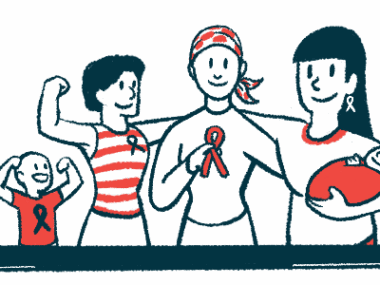Potentially Dangerous Bacterial Infection May Be Common in CF, But Few Show Symptoms
Written by |

The bacterial species Clostridium difficile is often found in the gut of cystic fibrosis (CF) patients, but rarely makes them ill. In those instances, atypical symptoms can delay diagnosis and proper treatment, and may put patients’ lives in jeopardy, a case study of three people who nearly died of Clostridium difficile infections reported.
The study, “Clostridium difficile infection in cystic fibrosis: an uncommon but life-threatening complication,” detailed those cases, and it emphasized that education about the infection’s symptoms is crucial for early diagnosis and effective disease management. The work was published in the journal Respirology Case Reports.
A team of Australian researchers, led by experts from the Sir Charles Gairdner Hospital, described three CF patients who sought treatment for severe abdominal pain, fever, and rapid heartbeat. All had received intravenous antibiotics for worsening respiratory problems one to three weeks earlier, and that made the researchers wonder whether the antibiotics triggered the infection.
None had diarrhea, which usually is one of the infection’s symptoms. Other studies have suggested that the CFTR mutation could render the gut cells insensitive to bacterial toxins.
Blood analyses showed the patients’ white blood cell counts were up, and they had low levels of the plasma protein albumin. (It is the most abundant blood protein in mammals and plays a key role in the blood’s osmotic pressure.)
The team performed computed tomography (CT) scans, which showed that all three had severe inflammation in the gut. Stool samples tested positive for C. difficile bacterial toxins. Two of the patients had sigmoidoscopies that revealed membrane changes — called pseudomembranous colitis — linked to the C. difficile infection.
All three received antibiotics, but recovery was complicated by respiratory and nutritional problems, in addition to the severe abdominal pain and distention they were experiencing.
The patients were given intravenous nutrition and antibiotics for Pseudomonas aeruginosa, and all were able to leave the hospital after 28 to 38 days.
When they were examined a year later, none had experienced another C. difficile infection, despite undergoing several antibiotic courses to combat Pseudomonas.
CF patients have asymptomatic C. difficile in the gut more often than healthy people or those hospitalized for other reasons (22% to 46% of CF patients are affected). It is not clear why the bacteria make some patients ill, but the researchers said several factors could be at play. People with CF have more bacterial growth in the gut, so it’s possible other species counteract the effects of the Clostridium bacteria. It is also possible that CF patients’ more acidic guts are a less-than-optimal environment for the disease to develop.





